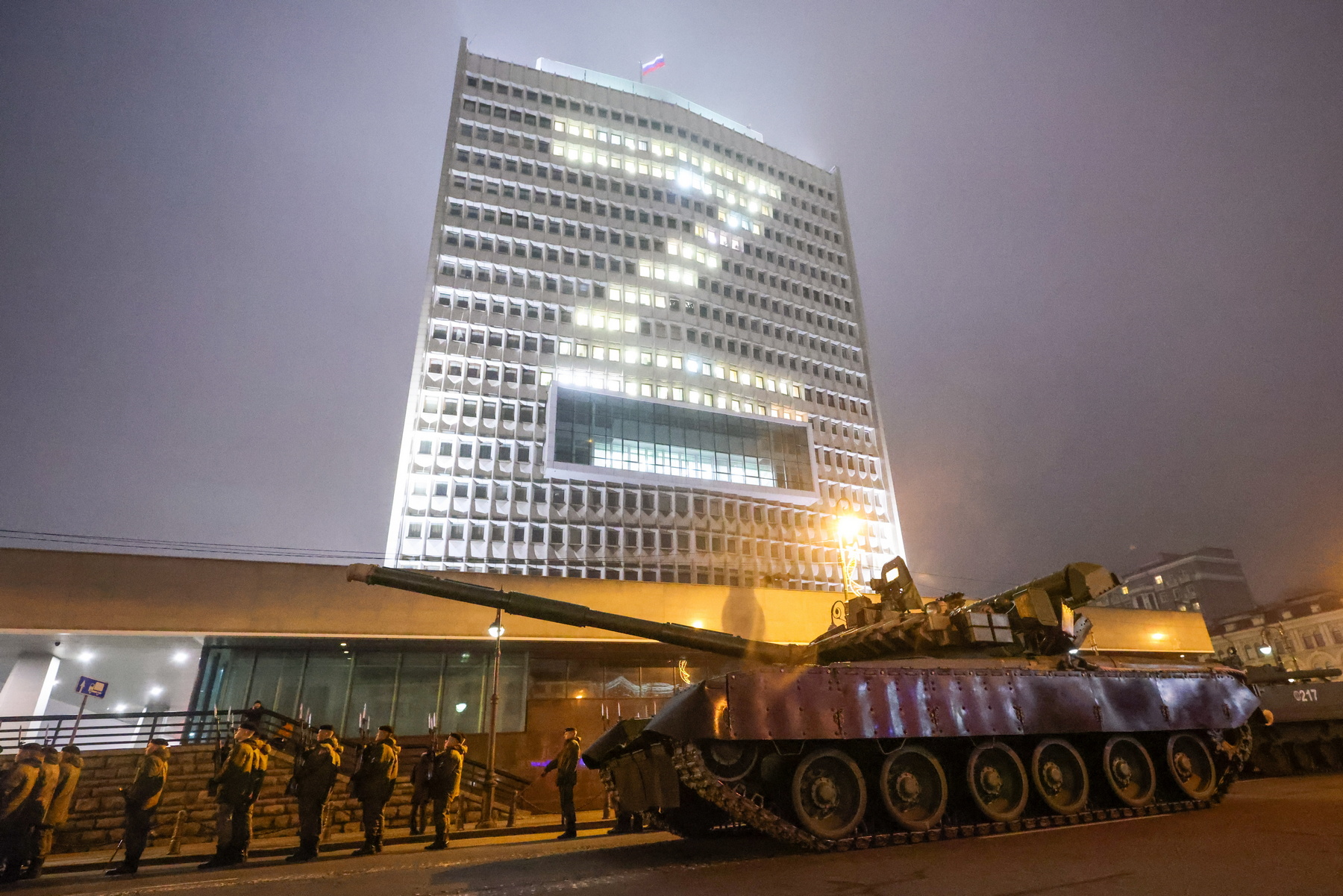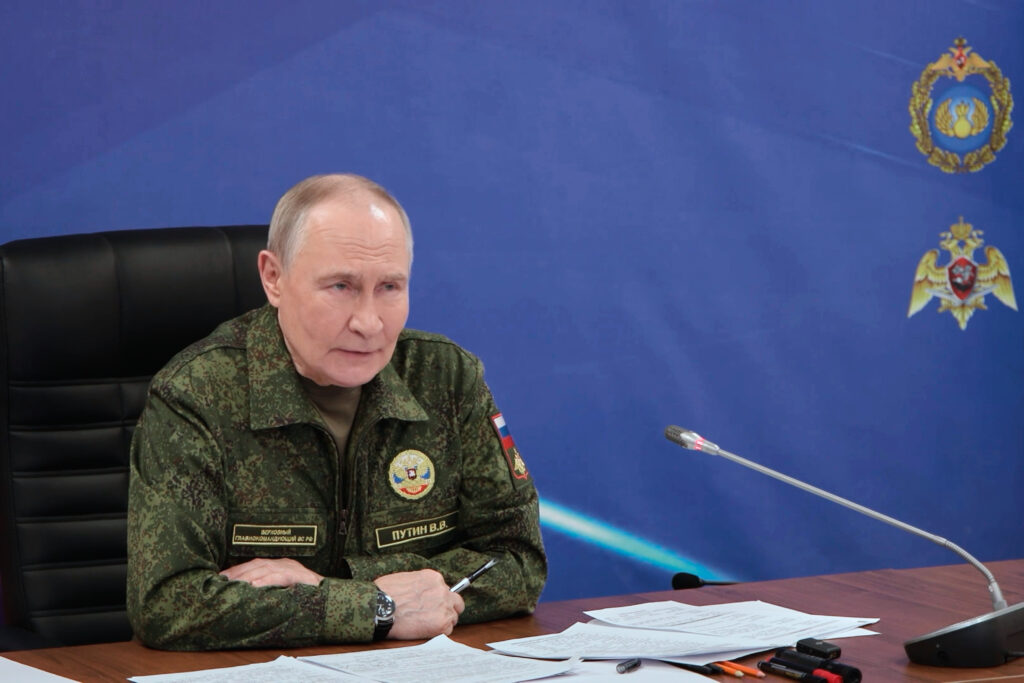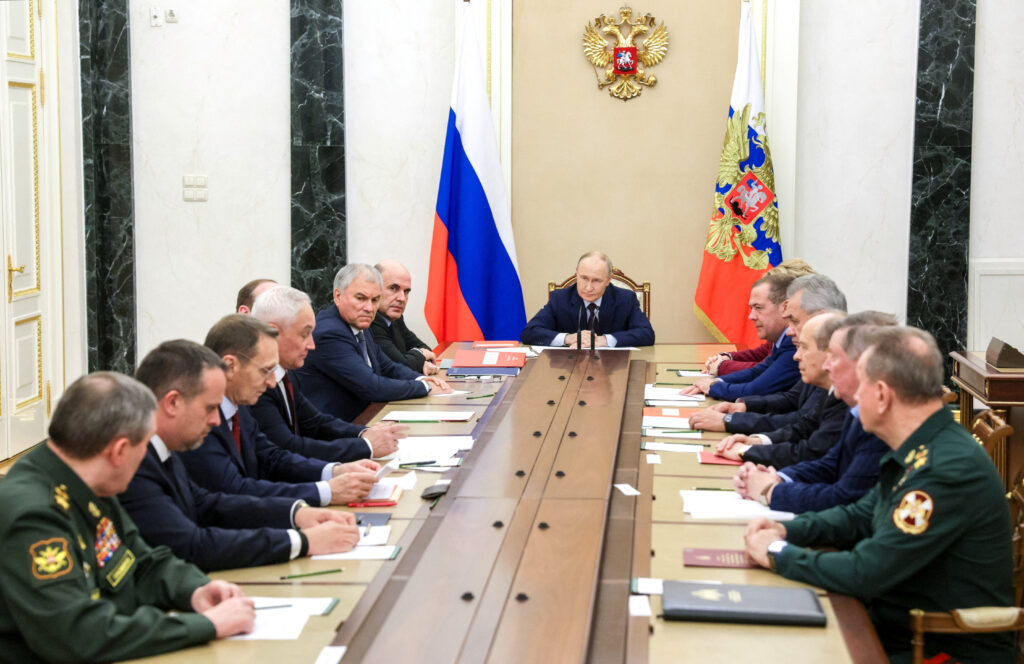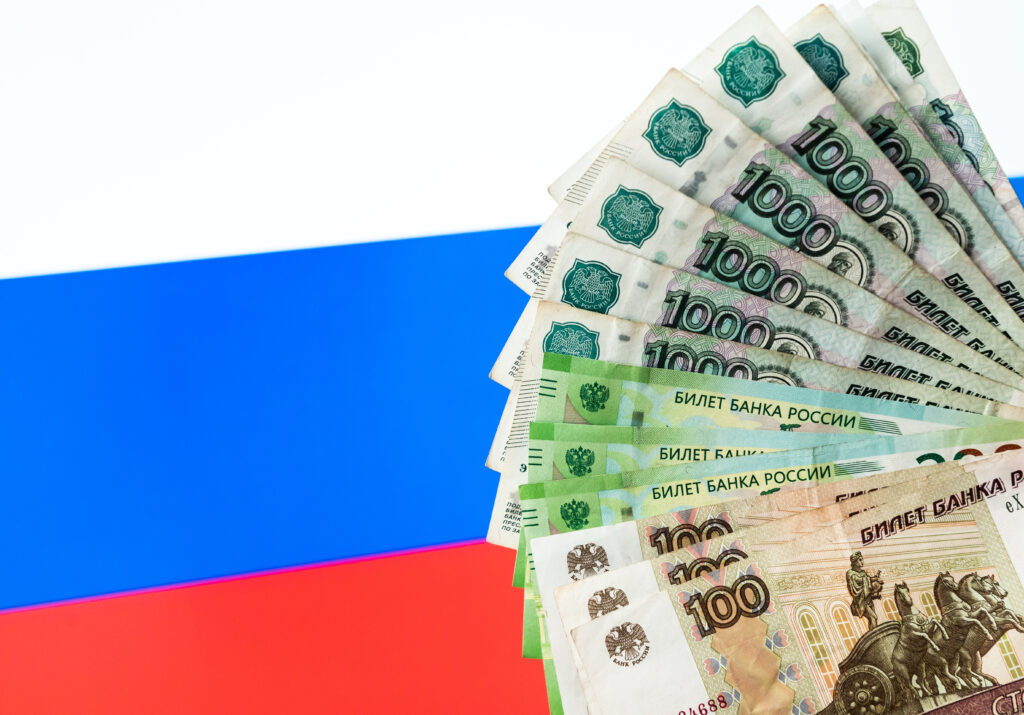Yale University’s Professor Timothy Snyder, who enjoys well-deserved recognition for his research on the political history of Eastern and Central Europe, published a short column in the New York Times entitled ‘We Should Say It: Russia Is Fascist’. The Russian translation published on the Meduza website was titled ‘We Should Say It Out Loud: Russia Is a Fascist State’. Snyder’s brief and rather emotional statement sparked an equally emotional public outcry in Russia. This reaction, in my view, was partly due to a slight misinterpretation of Snyder’s words.
Let me start by saying that Snyder does not refer to Russia as a ‘fascist state’ in the title or anywhere else in the original text. I am by no means accusing Galina Yuzefovich, who brilliantly translated the text for Meduza, of deliberately distorting the professor’s statement. Clearly, it was stylistic editing: in Russian, the words ‘Russia is fascist’ sound rather awkward. In Russian — which is generally wordier than English — the predicate in such a phrase requires a subject.
However, if one tries to grasp the meaning behind Snyder’s statement, it becomes clear that ‘fascism’ for him is not a characteristic of any particular state system but rather an ideological characteristic. Snyder starts his piece by stating that fascism occurred not only in Germany (which Snyder obviously considers the most representative case) and Italy (where, as Snyder reminds us, the word ‘fascism’ itself was coined) but also in other countries. Reference is made to Romania as an example of an Orthodox country whose political system between 1940 and 1944 was indeed modelled to a large extent on Nazi Germany. However, Snyder adds that fascism had adherents all over Europe and America, which clearly indicates the ideological nature of the phenomenon: there were no fascist regimes all over Europe and America at that time after all, but fascists could be found almost everywhere.
In explaining the essence of fascism as an ideology — or even as a political philosophy — Snyder begins with a brief formula which he has substantiated in his academic writings and which, from his point of view, apparently needs no further elaboration: fascism is about ‘the triumph of will over reason’. Frankly speaking, I would refrain from attributing such a philosophy to Vladimir Putin. Some of his actions, especially of late, do not look particularly reasonable, but it is easier to explain them as strategic miscalculations rather than as the fundamental belief that reality is a product of the will of prominent individuals and the masses guided by them, which was indeed characteristic of Adolf Hitler and Benito Mussolini. It seems to me that if any political philosophy could be ascribed to Putin, it would be the understanding of politics as a big game with rules which are constantly being revised in the interests of the most powerful and courageous players, who nevertheless act in a quite rational way.
Naturally, Snyder does not limit himself to such general philosophical characteristics of fascism either. He identifies three constituent elements which, in his view, make it possible to unmistakably classify the positions of the current Russian leadership as fascist: (1) ‘a cult around a single leader’; (2) ‘a cult of the dead’ which, in Russia, as Snyder explains, is built around World War II; (3) ‘a myth of a past golden age of imperial greatness’ which can be restored ‘by healing violence’ – that is, the war).
This set of attributes of fascism would probably seem sufficient to a specialist in the history of Eastern and Central Europe. However, a broader picture of recent political realities reveals quite a few countries where all of these attributes were present, but classifying these countries as ‘fascist’ makes little sense. Let us consider Africa and, to avoid offending any of the continent’s incumbent rulers, let us focus on the long-gone regime of Kwame Nkrumah in Ghana (1957−1966).
Nkrumah’s cult of personality certainly surpassed the one seen in modern Russia. Suffice it to say that one of the slogans of the youth organisation that functioned under the ruling party (Ghana was a one-party system at the time) was ‘Nkrumah is our Messiah’. The party’s ideology included both the cult of the warriors who had suffered in the struggle against colonialism and the idea of a ‘past golden age’ in Africa in general and in Ghana in particular, which, according to Nkrumah and his like-minded fellows, was interrupted by European colonisation. While still in power, Nkrumah concluded that the decolonisation process could not be completed without the creation of a single pan-African state, which required the violent dismantling of both the remaining pockets of colonialism and apartheid at the time and of many African regimes, which Nkrumah (often not unjustly) viewed as puppet regimes. Later, while in exile, Nkrumah expounded these ideas in his Handbook of Revolutionary Warfare.
Such phenomena can be observed en masse in countries that used to be regarded as the ‘Third World’. Perhaps even more telling would be the example of Indonesia in the first half of the 1960s, when President Sukarno was in power. The official ideology of that regime shared all three of Snyder’s characteristics. Moreover, unlike Nkrumah, who only fantasised about an all-African war of liberation, Sukarno was a militarist in practice. He threatened war against the Netherlands, demanding the handover of West Irian to his country, and quite successfully: the Dutch did not engage in the conflict and conceded (1962). Sukarno went on to unleash a war against neighbouring Malaysia over that part of Kalimantan which he believed to be lost Indonesian territory. On the surface, that war resembled the Ukrainian events of 2014−2022 in many ways: it started with Indonesian-trained and armed ‘volunteers’ but eventually turned into a direct military invasion by Indonesian forces.
I believe that if a country establishes a personalist regime that uses nationalist rhetoric (a combination I find very natural and almost inevitable), then — if the country has resources at hand to pursue an aggressive foreign policy — it is extremely difficult to avoid both the appearance of all three features of fascism mentioned by Snyder and attempts at military aggression. However, these examples show that not all countries become fascist in the sense that, according to Snyder, can be extrapolated from the Eastern and Central European experience of the 1930s and 1940s. It would probably be better to say that these are autocracies which are nationalist in their ideological orientation.
This brings us to a level of discussion for which Snyder is not directly responsible, as he himself speaks of ‘fascist Russia’ but not at all of a ‘fascist state’ in Russia or of a ‘fascist regime’ in Russia. As a historian, and not a political scientist, he does not refer to the latter concept at all. In Russia, however, Snyder’s statement was interpreted by many almost immediately, and without any critical reflection, as a statement about the establishment of a fascist regime in Russia. As a caveat, let me add that, while Snyder is not directly responsible for this interpretation, it is easily deducible from his text.
When applied to political regimes, fascism is a concept that can be formed by isolating some features of the two main cases, Nazi Germany and Fascist Italy, as essential and therefore capable of being extrapolated to some wider range of observations. Most scholars have always refrained from such an approach. Some have preferred the notion of totalitarianism, which is broader in content as it has been applied to the above cases and communist regimes. However, this notion is no longer popular in scholarly discourse. There have been exceptions. Jean Blondel, for instance, in his classification introduced back in the 1960s, distinguished between ‘egalitarian-authoritarian’ (i.e. communist) and ‘authoritarian-inegalitarian’ (similar to the German Nazi and Italian Fascist) regimes. But this classification did not take hold either.
Thus, the notion of a fascist regime is absent from comparative political studies. However, many scholars who have predominantly studied right-wing nationalist dictatorships have nevertheless wondered which of them the word ‘fascism’ should apply to, and this has naturally encouraged them to draw up lists of essential features of fascism. Indeed, should Spain under Francisco Franco be considered fascist? Portugal under Antonio Salazar? Greece under the Greek junta (the regime of the colonels)? Chile under Augusto Pinochet? And since such questions have usually been asked in relation to individual countries and have usually led to positive answers, it is not surprising that the lists of constituent features of fascism as a regime proposed by individual scholars are very different. Sometimes such lists are called ‘definitions’ of fascism. But this is not accurate. In the vast majority of cases, they are simply lists of descriptive characteristics that a particular researcher considers important and therefore determinative.
There is no space here for a detailed analysis of these definitions. Frankly speaking, almost all of them focus not on the structural, but the ideological, characteristics of the regimes — that is, they follow Snyder’s approach. I will not elaborate on that. Speaking of the fascist regime as such — that is, in a broad sense — of a set of practices used to gain and execute power, the general characteristics of German Nazism and Italian Fascism are as follows: (1) These were personalist regimes. (2) These were one-party regimes characterised by the suppression of all political opposition. (3) These were regimes which did not even formally use competitive elections. (4) These were regimes that exercised almost total control over all means of mass communication. (5) These were regimes that did not allow independent civic activism.
It is not difficult to see that the first attribute is typical of contemporary Russia. Today’s Russia mostly fits the fourth and fifth points but not quite the second or third ones. We will leave aside the discussion of the role of authoritarian multiparty systems and quasi-competitive elections in modern autocracies in general and in Russia in particular. I will note only that the dominant view in contemporary political science is that these institutions are important not because they make regimes more ‘liberalised’ but because they are useful for maintaining autocracies and largely determine the way they function. However, I should point out that, from the point of view of structural characteristics, this set of attributes is no worse a fit (and is arguably an even better one) for the two regimes discussed above — Nkrumah’s in Ghana and Sukarno’s in Indonesia — than for today’s Russia. And if the theoretically outlined category is suitable for describing such heterogeneous observations, its cognitive value is doubtful.
Of course, Snyder’s text is not scientific, and it would be strange to expect a newspaper column to be scientific. It is an opinion piece, whose main message any reader can easily deduce: if today’s Russia is fascist, then the threat it poses to the world can be eliminated in the same way in which the German and Italian regimes of the 1940s were done away with — that is, by defeating it militarily. Judging by the dynamics of the conflict, we cannot assess the probability of such an outcome, and at this point I think any categorical judgments would be premature. Predictions of this kind should be based on factual observations rather than on historical parallels.
In terms of theoretical schemes, the general notion of a ‘fascist regime’ is not particularly useful for making predictions either. It is true that Nazism in Germany fell as a direct result of military defeat. But the case of Italian Fascism is not so clear-cut. Let me remind you that the decision to depose Mussolini was made by his comrades-in-arms who were members of the Fascist Grand Council. If we talk about other cases which often fit the notion of ‘fascism’, then, in Spain, the autocracy was dismantled after Franco’s death by his closest associates; in Portugal and Greece, failed wars played a role, but still the mechanisms of regime transformation were internal: a military coup in the former case and mass protests in the latter; Pinochet in Chile left after losing a referendum he had called. This diversity of outcomes indicates that the very conceptualisation of such regimes as ‘fascist’ does not contribute to a better understanding of them.









